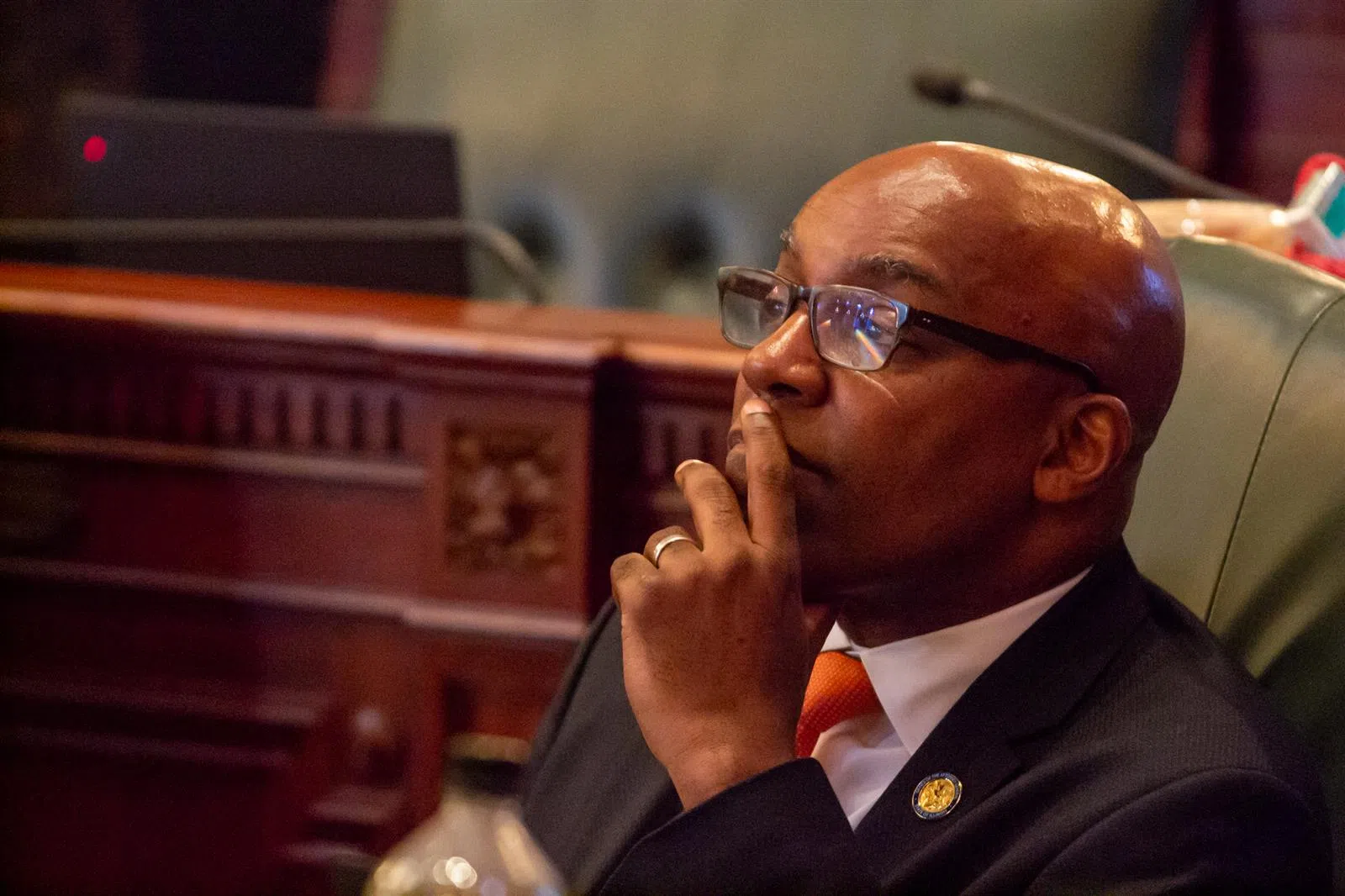Bill sponsor calls Kwame Raoul’s decision ‘heartbreaking’ and a ‘gut punch’ to women
By HANNAH MEISEL
Capitol News Illinois
hmeisel@capitolnewsillinois.com
A little over six months after pushing Democrats in the General Assembly to pass a law targeted at limited services pregnancy centers, Illinois Attorney General Kwame Raoul has agreed in a legal filing to stop the state’s enforcement of it.
Raoul’s decision to permanently halt enforcement of the law came in an agreed order that effectively ends a lawsuit filed by anti-abortion groups within an hour of Gov. JB Pritzker signing the bill into law this summer. The order still needs approval from a federal judge in Rockford who previously called the law “both stupid and very likely unconstitutional” when granting a preliminary injunction against the law a week after it was signed.
The anti-abortion groups behind the lawsuit quickly claimed victory this week.
“This law is just one of a number of illegal new laws enacted across the country that restrict pro-life speech,” Thomas More Society executive vice president and head of litigation Peter Breen said in a statement. “We hope this permanent injunction, with full attorney’s fees, serves as a warning to other states that would seek to follow Illinois and try to silence pro-life viewpoints.”
The law, passed during the final days of the General Assembly’s spring legislative session, expanded Illinois’ longstanding Consumer Fraud and Deceptive Business Practices Act to specifically include limited services pregnancy centers, often referred to as “crisis pregnancy centers.” Those facilities advertise services like ultrasounds and material help such as baby formula, diapers and parenting classes, but also aim to deter women from having abortions.
Abortion rights advocates claim CPCs often employ aggressive tactics to confuse those seeking abortion care and ultimately talk them out of terminating their pregnancies by means including directing them to their facilities instead of the actual clinics the abortion-seekers were hoping to find. Under the law, a judge or jury could award up to $50,000 in civil penalties for each act of fraud or deception proven in court.
Read more: ‘Crisis pregnancy centers’ could face lawsuits under Illinois’ expanded consumer fraud act
Judge Iain Johnston in the Northern District of Illinois sided with CPCs in early August, temporarily blocking the law on First Amendment grounds.
The day the bill was signed in late July, Raoul told reporters he was “confident” the law would be upheld in court, saying crisis pregnancy centers are “not free to lie to people and to use deceptive practices.”
Raoul has often recounted his visit to an abortion clinic where his driver was stopped by CPC volunteers who carried clipboards and attempted to divert him from going into the facility, instead saying they needed to check him in first.
“There’s nothing in the First Amendment that protects that type of action,” he said in July.
Though he and his surrogates had insisted this spring that the Consumer Fraud and Deceptive Business Practices Act needed an expansion to explicitly name CPCs in the same way the law names other businesses like car dealers, Raoul on Monday indicated he’d use the existing law to sue CPCs if needed.
He said the agreed order “in no way affects my ongoing work protecting women’s rights to access the full range of reproductive health services.”
At a news conference Tuesday, Pritzker said he agreed that the existing state law “will do what’s necessary to keep organizations like the crisis pregnancy centers from providing misinformation, disinformation and allow people to sue under that act.”
But House sponsor Terra Costa Howard said Raoul’s decision to “back off” from the legal fight over the law is a “gut punch” to women in Illinois and beyond, especially after Monday’s ruling from the Texas Supreme Court that denied a woman the opportunity to end her medically unviable pregnancy in order to “preserve her own health and fertility.”
“As the House sponsor of this bill, I am heartbroken by the decision to back down on our promise to Illinois women that these deceptive centers and their staffs will face legal consequences if they tell lies or conceal important health information from the patients who walk through their doors,” Costa Howard said in a statement Tuesday. “This settlement undoes so much hard work by so many advocates, organizations, and legislators, who stood together against the pressure tactics of these forced birth extremists.”
Costa Howard defeated the Thomas More Society’s Breen, a former suburban GOP lawmaker, in both 2018 and 2020, in races that centered largely on abortion rights.
Read more: ‘Crisis pregnancy centers’ could face legal action under measure poised for Pritzker’s signature
Judge Johnston is also overseeing a related challenge to a 2016 law stipulating that, if requested by a patient, providers who don’t perform abortions must refer, transfer to, or give patients written information about providers who do. The law is a change to Illinois’ 1970s-era Health Care Right of Conscience Act – a statute passed in the wake of the 1973 U.S. Supreme Court Roe v. Wade decision – aimed at shielding health care providers from liability if they have religious objections to abortion.
Read more: 7 years after passage, Illinois’ first in string of recent abortion protections gets day in court
Johnston heard a bench trial on the law in September, just weeks after issuing his preliminary injunction in the CPC fraud law case. The two intersect in myriad ways, and the practices of CPCs were discussed at length in the September trial. But nearly three months later, Johnston is still waiting on final post-trial motions and weighing arguments from both sides.
Capitol News Illinois is a nonprofit, nonpartisan news service covering state government. It is distributed to hundreds of print and broadcast outlets statewide. It is funded primarily by the Illinois Press Foundation and the Robert R. McCormick Foundation, along with major contributions from the Illinois Broadcasters Foundation and Southern Illinois Editorial Association.


